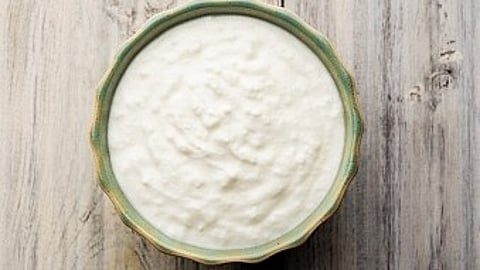Curd is one of the most relished foods in Indian dishes and is an inseparable part of our daily diet. The creamy texture and a tinge of tangy taste make it more delicious which is convenient enough to be paired with any of our daily meals. The usage of curd is extensive ranging from consumption in various delicacies to an external application as a cosmetic.
The bacterial transformation of milk results in the formation of curd and this process is irreversible. The simple process can change grape juice into wine, and likewise milk to curd. Lactobacillus bacteria in curd break some of the proteins in milk (casein, whey protein) into amino acids, making it easier to collect the nutrients. There are several factors influencing the process of fermentation which includes, temperature, starter cultures, and characteristics of milk.


